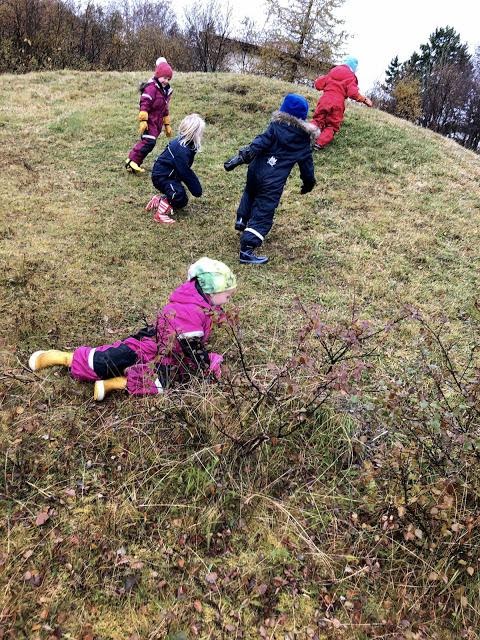People Worry About The Children We Teach
People worry that if we leave them to educate themselves by asking and answering their own questions through their play that they will never learn about hard work.
I’ve never seen a playing child who was not working hard. They show us they are working hard in the intensity of their concentration as they try to add one more block to the top of their tower. They show us their work ethic as they fully engage in the intense back-and-forth of negotiations over who is really going to be the queen. No one works harder than a child who is struggling with a puzzle or with balancing along a curb or trying to summon up the courage to take a leap. They are always working hard to process the confusing world around them through their dramatic play, their storytelling, and the strong emotions they wear on their sleeves.
Column by Tom Hobson
People worry about the children we teach, those who are allowed to teach themselves, to play, to learn the way human beings are designed to learn. Specifically, they worry that if the children are never being told what to do, they won’t learn how to do the things they don’t want to do.
It’s a valid concern, I suppose, one that goes back at least as far as the agricultural revolution when we invented the idea that someone could own a piece of land and that others would have to become laborers or starve. Prior to that, meaning for 99 percent of the existence of Homo sapiens, we were hunter-gatherers (and more accurately, gatherers who did a little hunting on the side). Our brains, the brains we still carry around inside our bodies, evolved for that kind of existence, one in which ownership, in which hierarchy, in which one category of person gets to boss the others around, wasn’t part of our reality. In other words, we have not evolved to react well to being told what to do.
Normal schools, for the most part, are designed around getting children used to this alien concept. The children are fenced in. They are required, by both law and custom, to be there. They are to go into certain rooms at certain times and are expected to attend to what the adults tell them they must attend to. As we all know, a lot of the kids aren’t too wild about this arrangement: they’re easily distracted, they don’t want to sit in chairs, they change the subject, and some even become outright defiant. In one way or another, they are all punished and shamed for those reactions. Oh sure, some of the kids seem to be doing “just fine,” but ask them if they would rather be somewhere else, doing something else, and they all answer “Yes.” Of course they would, but they’ve been told by their parents, by their teachers, by the rest of society that they don’t have a choice, so some of them, bless their hearts, are make the best of a chump deal even if they would rather, if given the choice, be teaching themselves, playing, and learning the way human beings are designed to learn.
They spend most of their childhoods like this, being told what to do, what to learn, how to behave. We keep them in line with our rules, punishments, and rewards. There are permanent records to consider. Poverty, prison, and worse are among the threats as kids get older and their rebellions more extreme. And there are have been rebellions all along the way because they still have these hunter-gatherer brains, brains designed to resist being told what to do, brains designed for freedom. It’s a lot of work for the adults to keep them in line, but it’s for their own good, because they must learn how to do the things they don’t want to do.
And then they are “free.” Just like that, they are on the other side of the fence. And now what? The lucky few have a plan, so they go off to university or trade school where they subject themselves to a few more years of being told what to do, but at least now they know why their doing it: they want to be an astronaut, or an actor, or an auto mechanic and this is the path they must follow. Most, however, are destined for the jobs that are available, joining other hierarchies, subjecting themselves to being told what to do because by now that’s all they know. They get put in boxes, little boxes all the same, vaguely dissatisfied, making the best of a chump deal, taking solace in their paychecks the way they once took solace in their grades. And then there are those who are either broken or who were never able to get their hunter-gatherer brains to accept this alien reality and came to see themselves as broken.
All this to say, I don’t share the worry that children won’t learn to do things they don’t want to do. Most of them face a couple decades, at least, of learning about that.
Have I described things too harshly? I suppose. There is more light and color in there than I’ve allowed in this description. There are teachers, for instance, who love their students, and that goes a long way. And I don’t want to under-estimate the power of the human spirit, bless their hearts, to make lemonade from lemons. But that doesn’t mean I don’t worry. I worry about all the children who are not allowed to teach themselves, who are not allowed to play, who are not allowed to learn the way human beings are designed to learn. Specifically, I worry that if they are always being told what to do, they’ll never learn how to do the things they do want to do. And that is a loss for all of us.
